brakes
Latest
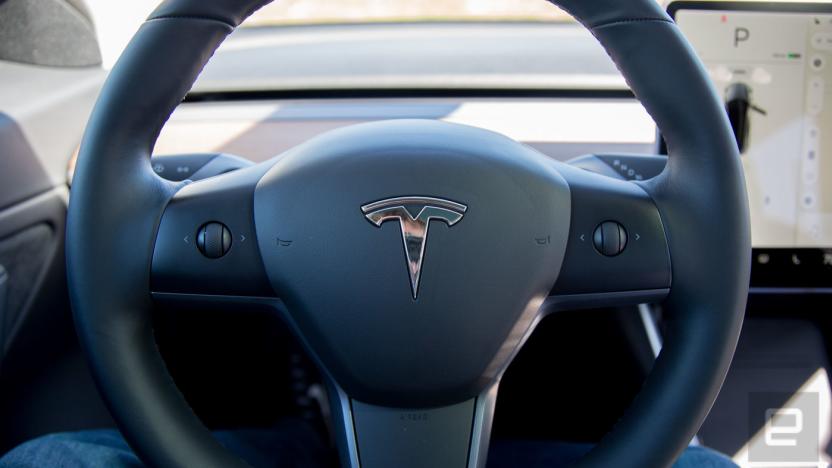
Tesla's Model 3 under investigation in South Korean safety probe
South Korea has launched a safety probe into Tesla, focusing on braking and steering systems including Autopilot.
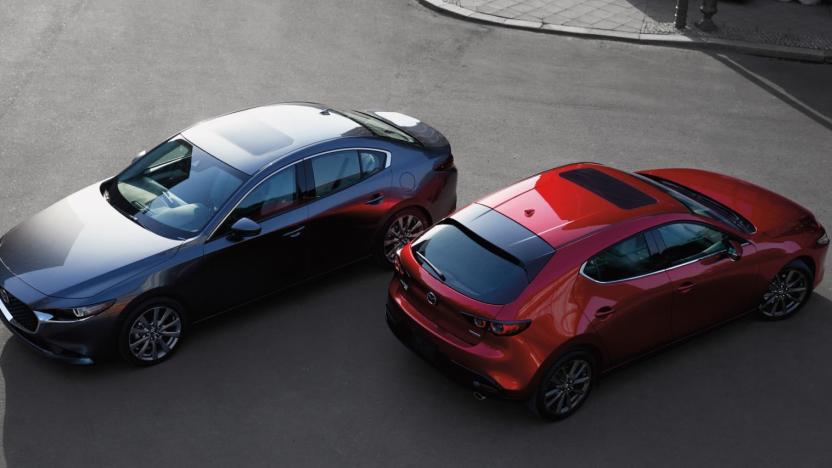
Mazda3 bug activates emergency brake system for no reason
Driver assists can help make our trips much safer, but integrating software decisions into the control of a vehicle could cause serious problems if the system glitches at the wrong time. According to Mazda, "Incorrect programming" in its Smart Braking System (SBS) can make fourth-generation Mazda3 vehicles to falsely detect an object in their path while driving and automatically apply the brakes while driving. The problem affects 35,390 2019 and 2020 model year cars in the US, but Mazda says it is not aware of any injuries or deaths as a result of the defect. If the issue occurs, the driver will notice because their car has suddenly stopped, and also as an alarm sounds and a message is displayed on the in-car warning screen. Some Reddit posters report experiencing situations of the system activating while driving with nothing around, and note that while the system can be disabled, it appears to re-enable itself every time the car starts.
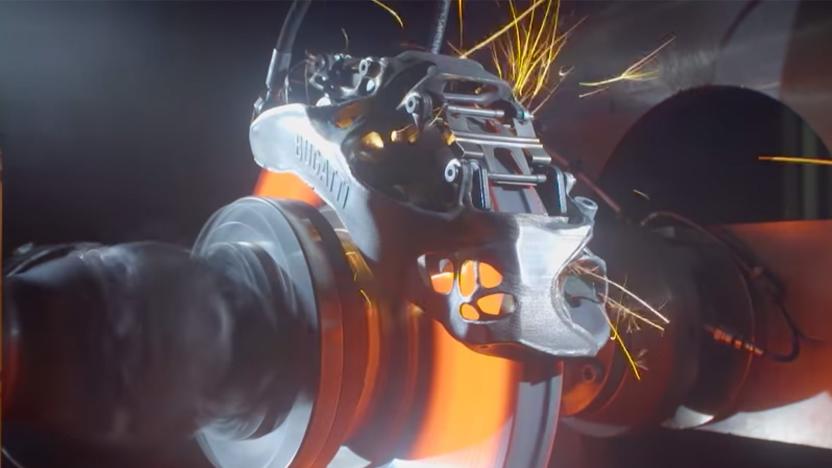
Watch Bugatti test the first 3D-printed brake caliper
Back at the start of 2018, Bugatti revealed that it was working on the first 3D-printed brake caliper. Now that the year is winding to a close, it's finally ready to show the caliper in action. Bugatti has posted a video (below) of a test that simulated braking at speeds as high as 249MPH. As you might imagine, it was quite the show -- the disc alone reached temperatures up to 1,877F, and there were plenty of flames and sparks as the caliper and disc reached their limit.
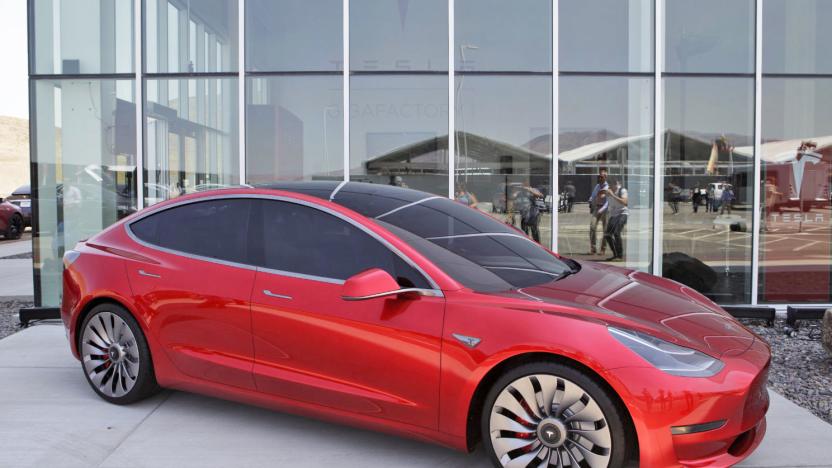
Tesla Model 3 earns Consumer Reports recommendation with brake update
Earlier this month, Consumer Reports chose not to recommend Tesla's Model 3 due to a handful of factors, though most notably because of a long 60-to-0MPH braking distance. While Tesla claimed the car could come to a stop in 133 feet, Consumer Reports didn't find that to be the case. In tests, the Model 3 more often stopped in 152 feet, a longer distance than that required by a Ford F-150. Initially, Tesla said the discrepancy could be due to factors like temperature, the road surface and past driving behavior, but later, CEO Elon Musk said the brake issue could be fixed with a firmware update. Consumer Reports agreed to retest the Model 3 following such an update and today the publication announced the car's brakes passed its test and the Model 3 has received its recommendation.

Tesla rolls out Model 3 braking update to tackle reviewer complaints
Tesla is making good on its promise to improve the Model 3's braking through a firmware upgrade. Elon Musk has confirmed that a fix for the EV's inconsistent brake performance started reaching cars on May 25th. The update should reduce the braking distance by about 20 feet for "repeated heavy braking events," according to the exec. That's no doubt meant to help reviewers like those at Consumer Reports (whose less-than-flattering review prompted the update), but something tells us that drivers won't complain about anything that could help them avoid a collision.
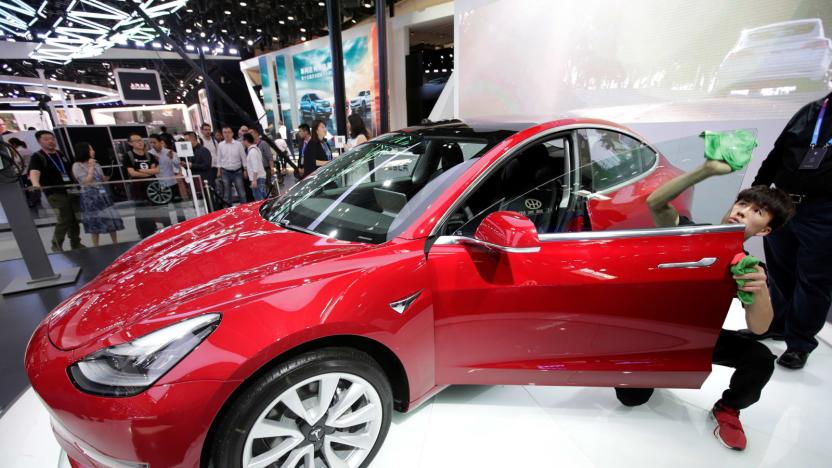
Consumer Reports will give Tesla’s Model 3 another shot after brake fix
After Consumer Reports once again slammed a Tesla vehicle -- this time, the automaker's eagerly-anticipated Model 3 -- the publication said it will retest the car following a software update. The car company's CEO Elon Musk promised a firmware revision will come in the next few days to address one of Consumer Reports' biggest sticking points: The car braked far more slowly than competitors, taking even longer to come to a complete stop than a Ford pickup truck.
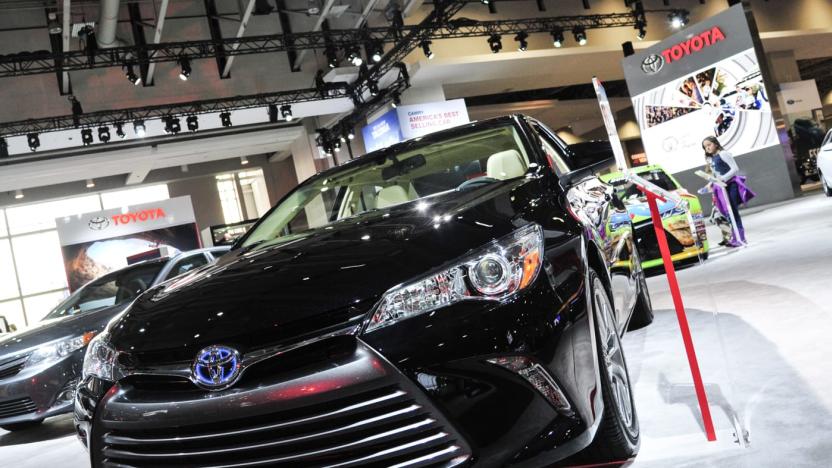
Toyota will make automatic braking near-standard by 2017
Worried that you might not stop your Camry in time to avoid a nasty collision? Toyota is determined to prevent that from happening going forward. The Japanese car maker has announced that its automatic braking systems will be standard on 25 out of 30 Toyota and Lexus models, at nearly every trim level, by the end of 2017. It'll only be non-standard on the 4Runner, 86 (formerly the Scion FR-S), Mirai, Lexus GX and Scion iA.

London Tube's 'regenerative braking' tech can power an entire station
To make the London Underground greener and more cost effective, Transport for London (TfL) has been trialling a new system that collects and recycles waste energy from train brakes. Over the course of a week, the company says it's been able to capture electricity at a rate of 1 Megawatt hour per day -- enough to slash 5 per cent off its energy bill. The salvaged energy could also be used to run a station as large as Holborn for at least two days every week, TfL claims. The "state-of-the-art regenerative breaking system" is dependent on a new "inverter" set up at a substation near Cloudesely Road, where TfL manages the power sent to the Victoria Line. The "world-first" setup also reduces the amount of heat that's normally produced by the train's brakes. Recovering power could, therefore, keep London's Tube cooler and reduce TfL's operating costs, leading to cheaper fares. The "inverter" is now in operation full-time, but only on the Victoria line -- all the same, it's good to see TfL exploring new ways to modernise its iconic transport network.

Toyota is bringing automatic braking to lower-priced cars
You won't have to splurge on a luxury car (or a pricey option package) just to get a vehicle that will brake by itself in a crisis. Toyota has launched a strategy that will bring automatic braking to most of its lineup, not just premium rides. The technology will be a relatively low-cost ($300 to $635) option for just two vehicles at first, the RAV4 Hybrid SUV and Lexus' RX crossover, but the automaker hopes to have it available or included in "nearly all" of its models by the end of 2017. It'll be easy to find in the near future, too. The Avalon sedan is next in line, and a total of seven additional Toyota and Lexus models are on deck this year. Toyota certainly isn't the only company hoping to popularize smart braking, but this plan could be one of the most ambitious.

Volvo revamps its pedestrian detection system to automatically brake for cyclists (video)
Cars that automatically stop when a pedestrian is in the way have been in Volvo's fleet for a while now, but the automaker has just unveiled an update to its existing tech that'll stomp on the brakes when cyclists are too close for comfort. Announced at this year's Geneva Motor Show, the revamped system detects how close objects are with a grille-mounted radar and then uses a high-def camera within an auto's rear-view mirror to discern whether it's barreling down on a pedestrian or a biker. When bicyclists swerve in front of an automobile heading in the same direction, the setup immediately alerts the driver and applies full brake power -- a world's first Volvo says. According to the Swedish manufacturer, all vehicles outfitted with the pedestrian detection will have the cyclist spotting technology baked in, and it'll show up in mid-May within the new Volvo V40, S60, V60, XC60, V70, XC70 and S80. Head past the break for a video of the feature in action.

Hackers can remotely disable your car's brakes, create sensationalist headlines
We think you're going to be hearing a lot about this one over the next few days... or weeks. A team of researchers at the University of Washington and the University of California San Diego have determined that, with physical access to your car's ECU, a hacker could "adversarially control a wide range of automotive functions and completely ignore driver input -- including disabling the brakes, selectively braking individual wheels on demand, stopping the engine, and so on." For example, the team was able to connect a computer to a car's ODB-II port, access that computer wirelessly, and then disable the brakes in the first car while driving down the road in a separate vehicle. The conclusion is that these in-car systems have few if any safeguards in place and, with physical access, nearly anything is possible. The solution, of course, is to prevent physical access. So, if you see a hacker hanging around in your car looking all shady, or a laptop computer sitting in the footwell that totally wasn't there before, well, you know who to call.

Segways banned in the Netherlands due to a "lack of brakes"
It looks like those serious about motoring around on their Segway might have to start crossing international boundaries in order to do so legally, as the Netherlands have now joined Japan and Britain in the growing list of countries which have outlawed the oft ridiculed (and potentially dangerous) personal vehicles. Dutch police have officially enjoined Segways "on all public roads, sidewalks, and bike paths," claiming that the lack of an onboard braking system prevents it from being categorized as a "vehicle" by the Royal Traffic Agency, which bars it from receiving a license plate and becoming a street-legal ride. Although a spokesman from the RTA actually commented that the Segway was "a nice vehicle," using the machines on public property is no longer permissible, but it was said that it could take some time before regulations are actually passed down and "enforced." Segway Netherlands director Piet Kruijt was (unsurprisingly) upset by the ruling, and claimed that he was "working on all fronts to get things resolved," and for nothing more than our sincere concern for the Amsterdam Segway Tours (saywha?) employees that are hoping to have work come March, we hope he's successful.[Via The Raw Feed]








